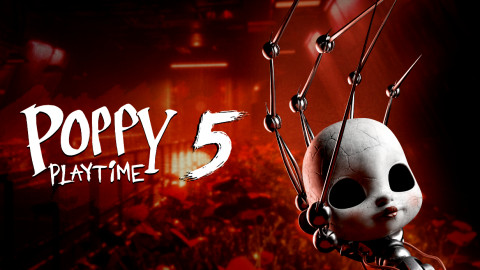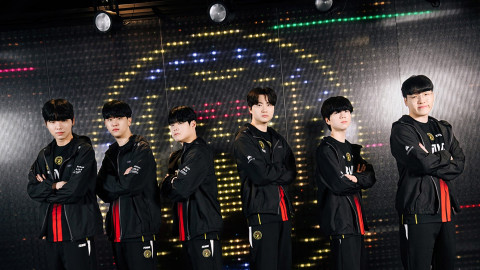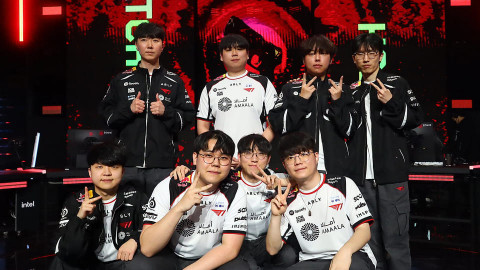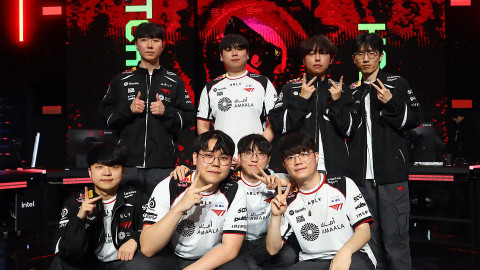
The Esports Observer published an Op-Ed on Monday written by Trent Murray, who made the case that World Chase Tag is an esport.
As a long-time nerd about defining esports and their relationship to sports, this take left me scratching my head. When I read the article for the details, it only left me more confused. I think attempting to define in-person tag competitions as an esport fails to hold up to even surface-level scrutiny.
And it brings up an even bigger discussion: Esports needs to be better defined so random statements like “tag is an esport” can’t be even remotely argued. As esports grows, the qualifications must be more specific to reflect the industry’s competitiveness and legitimacy. It should not be acceptable to mock the concept of esports so easily and perpetuate the stereotype that esports isn’t a real thing to the general public.
Just because sports and esports are now native to the same platforms, focus on the same audience, and feature similar pace designs doesn’t mean they are the same.
What is an esport?
The Esports Observer attempted to define World Chase Tag as an esport in this article so I expected a clear and concise definition of what constitutes esports. However, they never provided one and instead only compared the characteristics of WCT to some esports, which is inductive reasoning at best.
We will look at those specific claims in the next section, but for now we would like to offer our own definition of esport.
An esport is an organized gaming competition that takes place through an electronic interface. Some would also include the presence of an online or in-person audience in the definition of esports, however, I think this is an overly limiting concept of esport. Not even every pro-match is broadcast and I don’t think it ceases to be esports when it isn’t broadcast.
Under this widely accepted definition of esports, World Chase Tag is not an esport. It is a sport that is being broadcast to an audience, like traditional sports. It doesn’t include the electronic interface that the “e” in esports stands for.
Of course, there are some competitions that walk the line between sport and esport. For example, chess can be played on a physical or an online board. When played on a physical board, it is considered a sport. When played on a digital board with things like digital clocks that automatically start and stop (or premoves and the like) it transforms into an electronic sport, or esport.
I don’t think that the WCT walks this line at all. No part of World Chase Tag, at any point, happens in an electronic or digital interface. The entire contest takes place in-person, with no devices involved whatsoever, making it more similar to a traditional sport than an esport.
Responding to Esports Observer’s definition of esport
Since this article didn’t define esport, we will have to determine what their criteria is for esports using the three qualifications they set forth in their defense of tag as an esport. According to the implied standard of this article, a sport becomes an esport if:
- It has rounds
- It has a fast pace
- It is native to YouTube and online platforms
My standard of an esport provides a clear brightline for when something is or is not an esport, based on objectively measurable criteria. The criteria provided by Esports Observer, on the other hand, do not hold up to scrutiny since none of them are unique features to esports alone.
Let's look at each standard in order.
The first claim is that esports are partly defined by having a round-based format, using VALORANT’s rounds as an example. However, rounds have existed in sports like boxing and wrestling for thousands of years, so they don’t evidence that something is an esport. Also, there are esports that don’t happen in rounds. For example, Rocket League happens across a five-minute match with possible overtime. Given this fact, esports cannot require a round-based format without jettisoning a significant number of competitive video game titles from the ranks of esports.
On the second point, the author contradicts himself. He says WCT is fast-paced, which makes it an esport because other esports are fast-paced. First, he points out that DOTA 2 has very long matches with a relatively slow pace in his own article, which means that esports can’t be defined by their fast pace unless he is saying DOTA 2 is not an esport. Secondly, sports like tennis, F1 racing, and many others feature fast-paced gameplay, so once again this standard isn’t indicative of esport.
The final qualification that the author made was that WCT grew up on YouTube. Once again, this doesn’t make something an esport. Plenty of activities grew up on YouTube that would not be considered esports. Both sports and esports are serving the same audience through the same platforms, so they may look similar and borrow from each other, but that doesn’t mean we have to conflate the two entirely. That is a disservice to the esports and sports community alike.
If we argue that any sport that grew up on YouTube is an esport, then we also have to accept that Ultimate Frisbee is an esport because it streams on Facebook.
This is an asinine requirement given that even video games being streamed to Twitch aren’t automatically an esport. It’s not an esport if popular streamers play Among Us together. It’s not an esport if a content creator opens a game of Overwatch while chatting to his fans. This is simply known as “playing a game.” Esports is the competitive side of gaming, usually organized in some fashion.
A pro player playing League of Legends on Twitch while chatting to his fans is called “streaming a video game.” The same pro playing League of Legends on stage is called “esports.”
While esports is still a very new industry with a lot of growing pains, innovation, and self-aware memes, that doesn’t mean esports is a joke. You wouldn’t write an article claiming that tossing a ball down the hallway for your cat is a sport because there’s a ball and there’s arm movement. Why is the esports community so quick to mock esports and further distort what it means to be an esport.
I would watch World Chase Tag. But to create an article dedicated to how it’s actually an esport because you can watch it on YouTube is borderline offensive in the sense that it perpetuates the concept that esports has no definition, no standards, and that the general public can just toss the term around as they please.
The argument set forth by the Murray from the Esports Observer doesn’t hold up to scrutiny. At best, it conflates sports and esports based on poorly supported reasoning. At worst it misses the whole point of what makes esports distinct in the first place.
-

Aaron is an esports reporter with a background in media, technology, and communication education.
-

Esports writer and editor with a passion for creating unique content for the gaming community.
Sort by:
Comments :0





